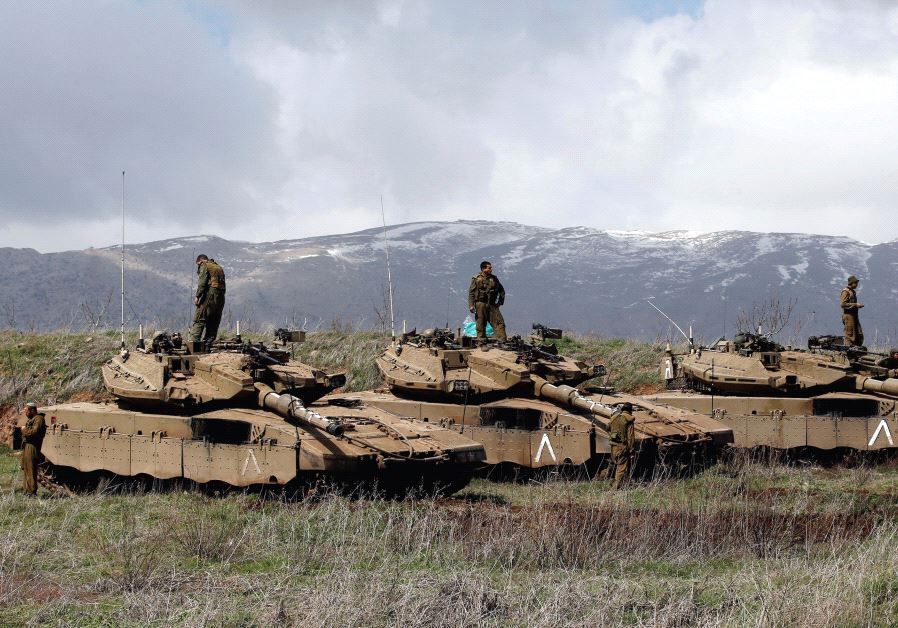Discussing 'red lines': Israel hedges military options in Syria
In the wake of the alarming exchange between Israel and Syria earlier this week, Israel braces for a possible escalation.
 IDF tanks are seen along the Golan Heights border with SyriaByCHARLES BYBELEZER/THE MEDIA LINE
IDF tanks are seen along the Golan Heights border with SyriaByCHARLES BYBELEZER/THE MEDIA LINE